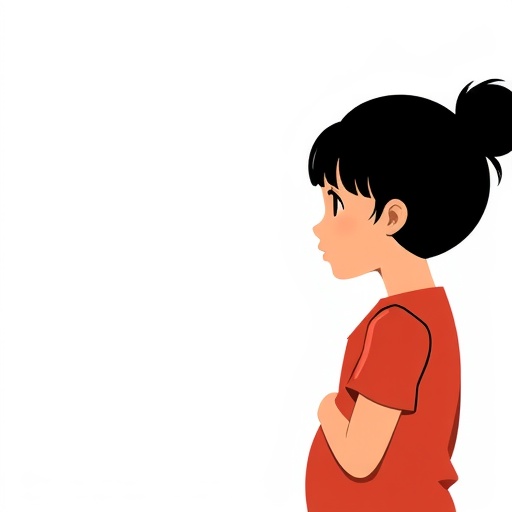In the wake of the COVID-19 pandemic, the psychological aftermath continues to ripple through families worldwide, with anxiety remaining a dominant issue, particularly among children. A groundbreaking new study published in BMC Psychiatry delves into the intricate relationship between maternal emotional self-disclosure and children’s anxiety levels in the post-pandemic era. This research sheds light on the critical role mothers play in managing their children’s mental health through emotional openness and communication, offering promising insights into mitigating childhood anxiety during and after global crises.
The study, conducted in Borujerd, Lorestan, Iran during 2022, involved a cross-sectional analysis of 305 mothers with elementary school-aged children. Utilizing validated tools such as the Emotional Self-Disclosure Scale and the Spence Children’s Anxiety Scale completed by mothers, the research team sought to quantify the dynamics of emotional exchange and its impact on young minds. Emotional self-disclosure refers to the extent and manner in which individuals share their feelings and psychological experiences with others—in this context, how mothers communicate their emotions within the family.
Significantly, the study uncovered a strong, inverse correlation between maternal emotional self-disclosure and children’s anxiety, with a correlation coefficient of -0.890 (p < 0.001). This robust negative statistic indicates that as mothers become more open and expressive about their emotional states, their children exhibit considerably lower anxiety levels. This relationship persisted even after statistically controlling for potential confounding factors, emphasizing the independent importance of maternal openness on mitigating childhood anxiety in the post-pandemic social landscape. Delving deeper into demographic influences, the research identified that maternal emotional self-disclosure varied significantly based on several contextual factors. Variables including the mother’s place of residence, education level, occupation, as well as the age, education, and occupation of their spouses, alongside the child’s sex, educational stage, and age, all bore meaningful associations with mothers’ emotional expression tendencies. Notably, the mother’s chronological age did not influence self-disclosure, suggesting that emotional communication is more linked to social, educational, and familial contexts than to maternal age alone. One compelling implication of this study is the suggestion that promoting emotional self-disclosure among mothers—particularly those who are well-educated, employed, and living in urban environments—could be a pivotal intervention strategy to counteract childhood anxiety following large-scale crises similar to COVID-19. The findings stress that maternal emotional openness is not merely a personal coping mechanism but a critical psychosocial tool that reverberates throughout family units, shaping children's psychological resilience or vulnerability in uncertain times. Furthermore, the study highlights that children’s demographic characteristics also interplay with anxiety outcomes. Female children, younger children, and those at lower educational levels were found to benefit most from their mothers’ increased emotional self-disclosure. This nuanced insight encourages tailored support initiatives that consider the unique vulnerabilities of different child subgroups in the context of parental emotional dynamics. From a methodological standpoint, the study’s rigorous statistical approach—incorporating independent t-tests, one-way ANOVA, Pearson correlation, and multivariate regression—affords a high degree of confidence in the validity of the findings. Such methodological rigor ensures that the revealed associations hold empirical weight and are not artifacts of sampling or measurement bias. This solid analytical foundation underscores the reliability of maternal emotional self-disclosure as a critical factor in children’s mental health post-pandemic. The psychological mechanism underlying these findings can be interpreted through frameworks of family systems theory and emotional socialization. When mothers actively disclose and process their own emotions, they create a safe communicative environment for children, enabling them to recognize, express, and manage their anxieties more effectively. Emotional transparency by caregivers acts as a form of modeling adaptive emotional regulation strategies, thereby inoculating children against the lingering stresses engendered by the pandemic’s disruptions. Importantly, this study also challenges previously held assumptions that maternal emotional self-disclosure is uniformly beneficial regardless of context. Instead, it delineates a matrix of socioeconomic and familial factors that shape emotional expression and its consequent impact. Such differential patterns underscore the necessity of culturally sensitive and context-specific mental health interventions, particularly for communities undergoing post-crisis recovery. The ramifications of these findings extend beyond the immediate post-COVID-19 period, offering a blueprint for future public health responses to pandemics and societal upheavals. Enhancing maternal emotional skills should be integrated into broader mental health programming aimed at family units, positioning mothers as pivotal agents for psychological well-being. Educational workshops, community support groups, and policy frameworks need to emphasize the importance of emotional literacy and expression within families to buffer against childhood anxiety. Moreover, the study invites further research into the bidirectional nature of emotional exchange within families. While this investigation focused on maternal disclosures, expanding the scope to include paternal and sibling dynamics could illuminate additional pathways influencing child anxiety trajectories. Such holistic family-centered research could refine intervention targets and foster comprehensive mental health resilience strategies. In conclusion, this pioneering research provides compelling evidence that maternal emotional self-disclosure plays a vital role in moderating childhood anxiety in the aftermath of global disruptions like COVID-19. By embracing emotional transparency, mothers can effectively reduce their children’s anxiety, promoting healthier psychological development during periods of uncertainty. As societies grapple with the enduring mental health impacts of the pandemic, this insight offers a beacon for targeted, evidence-based approaches to nurturing the next generation’s well-being. Subject of Research: The influence of maternal emotional self-disclosure on children’s anxiety levels following the COVID-19 pandemic. Article Title: The relationship between maternal emotional self-disclosure and children’s anxiety in the post-COVID-19 era Article References: Ghasemi, F., Valizadeh, F., Mohammadi, R. et al. The relationship between maternal emotional self-disclosure and children’s anxiety in the post-COVID-19 era. BMC Psychiatry 25, 381 (2025). https://doi.org/10.1186/s12888-025-06810-7 Image Credits: AI Generated DOI: https://doi.org/10.1186/s12888-025-06810-7




